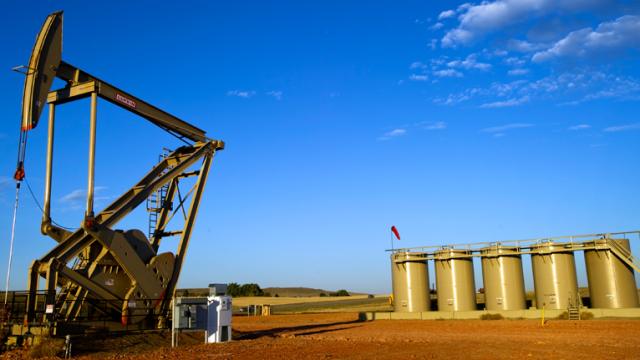Reuters Analyst: New York Times Story About North Dakota Oil Boom Wasn't Balanced

Reuters market analyst John Kemp writes about that New York Times story focusing on North Dakota’s oil development from earlier this week, and finds it wanting. He notes the manifestly positive economic impacts of the oil boom – more commerce, higher wages, more jobs, etc. – and suggests that while these things don’t justify pollution, it’s not fair to point out that no source of energy is perfect and that the standard of regulation which would be imposed by those with the Times’ point of view would preclude the boom from even happening:
None of this is meant to excuse spillages, blow outs and pollution, or suggest the industry, regulators and politicians should not pursue constant improvements.
But it is important to keep pollution problems in perspective. Every economic activity entails some risks. The point is to manage them.
Hazards are not restricted to oil and gas. Few commentators like to acknowledge the pollution associated with producing the rare earth elements essential to much modern clean technology.
Nor are the hazards restricted to shale. Far more pollution has been caused by conventional onshore and offshore production over the decades.
North Dakota’s track record on pollution control and safety is considerably better than alternative sources of U.S. fuels such as Nigeria or Venezuela.
The Times article implies North Dakota’s politicians and regulators were not up to the job and should have pursued a more aggressive and confrontational approach with oil producers.
However, that is both unfair and unrealistic. Adopting the sort of zero-risk, zero-tolerance approach which the Times advocates would have ensured the shale boom never happened.
The whole column is worth a read, but I think this point is particularly well-made.
Like it or not, Americans are dependent upon fossil fuels for quality of life they’ve come to expect. Lights that turn on when they flip a switch, cars that take them where they want to go, goods from all over the country and world available at their local stores, and all of this done at prices they can afford is the result of fossil fuels. Anyone thinking that technologies like wind power or biofuels are something we could rely on while maintaining that same quality of life – it’s not even clear they could be scaled to that scope – is a fool.
So the reality is that we have to drill for oil and dig the coal, and if we’re going to do that, we have to accept that the process is going to be flawed. There will be mistakes and spills and pollution.
But what are the alternatives?
The Times doesn’t bother to ask that question – they’re blind to it, I think – but they should have.




